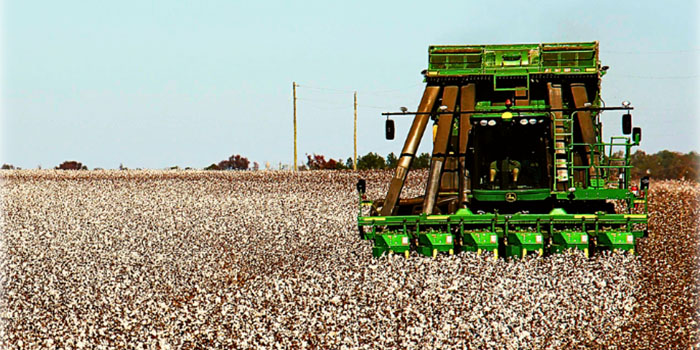By Sharon Omahen
University of Georgia
For eight years, University of Georgia Cooperative Extension
county
agents have used digital images, computers and e-mails to
quickly
diagnose insect and disease problems. Now a UGA team has
installed
their system in Honduras to protect U.S. farmers and
consumers.
Called Distance Diagnostics through Digital Imaging, the
system is
in most UGA Extension county offices statewide. UGA shared the
technology with 12 other U.S. land-grant universities and then
added Honduras as its first international partner.
Port prevention
Two DDDI systems have been set up at the Port of Cortez to
prevent
plant diseases and insects from leaving Honduras.
“This is one of only a handful of U.S. Customs offices set
up
in
ports outside the U.S.,” said Marco Fonseca, a UGA Extension
horticulturist and native Honduran. “A U.S. inspector checks the
shipments, so now agricultural products can go straight into our
market.”
Fonseca says the U.S. benefits are twofold: The nation is
further
protected from plant diseases and insects entering its borders,
and
Americans get fresher imported fruits and vegetables.
“The DDDI system at the port is very valuable in terms of
biosecurity,” he said. “And it expedites the process on
valuable,
perishable products. We need to I.D. pathogens and pests at that
point, not on our shores.”
Inspectors are trained to look for pathogens and pests
common
to
the region. Fonseca says with insect pests, this includes
training
inspectors to recognize all stages of an insect’s life, not just
the adult stage.
Pest barrier
“Barriers like this slow down the movement of pathogens and
pests,”
he said. “It’s a defense system to slow down movement. We
aren’t
going to stop the movement of people, so we have to stop the
movement of pathogens.”
The DDDI systems at the Port of Cortez were two of five
installed
through a UGA partnership with the Zamorano Pan American School
of
Agriculture in Honduras. The other three were set up at the
university, on a rural ranch and in a farm village.
“The extension system doesn’t exist there, so farmers don’t
have
county agents to go to for help,” Fonseca said. “Now there’s a
way
for them to get help from the local agriculture university.”
Jean Walter, a UGA Extension agent in Jasper County, Ga.,
knows how
well DDDI works, pointing to a weed problem she checked in a
farm
pond.
“I took pictures of the pond, close-up photos of the weeds
and then
used the dissecting scope to take magnified photos,” she said.
She
e-mailed the photos to a UGA researcher, who quickly identified
the
problem and recommended how to control it.
Farmers and homeowners like the quick turnaround. “With the
high
price of gas now, we’re seeing a huge increase in the system’s
usage,” she said.
Disaster prevention
At an aquaculture conference in Panama and later during a
church
mission trip in Honduras, Walter got the idea of sharing the
technology with other countries.
“In Panama, I heard farmers talking about the huge loss their
country’s shrimping industry suffered due to white spot virus,”
she
said. “This system could have saved Panama and other surrounding
countries millions of dollars.”
In Honduras, she saw many ways the DDDI system could be
used. “I
know ‘rural poor’ because I’ve seen it,” said Walter, who also
lived in the Philippines for five years. “I know what it’s like
to
not have access to health care for people and animals.”
Walter gained the support of Fonseca and Don Hamilton,
director of
the DDDI program at UGA. What she still needed was funding. That
came from Robert Fowler of Covington, Ga.
Fowler is a trustee with the Arnold Fund, a charitable trust
fund
created by the late Robert O. and Florence T. Arnold. The trust
funds scientific and educational programs that strive to make
life
better for the citizens of Newton County, Ga. and beyond.
“Each system costs about $5,000 to set up,” Fonseca
said. “This
includes two microscopes, a camera that mounts on the
microscope,
a dissecting scope, a digital camera, a computer and a
printer.”




